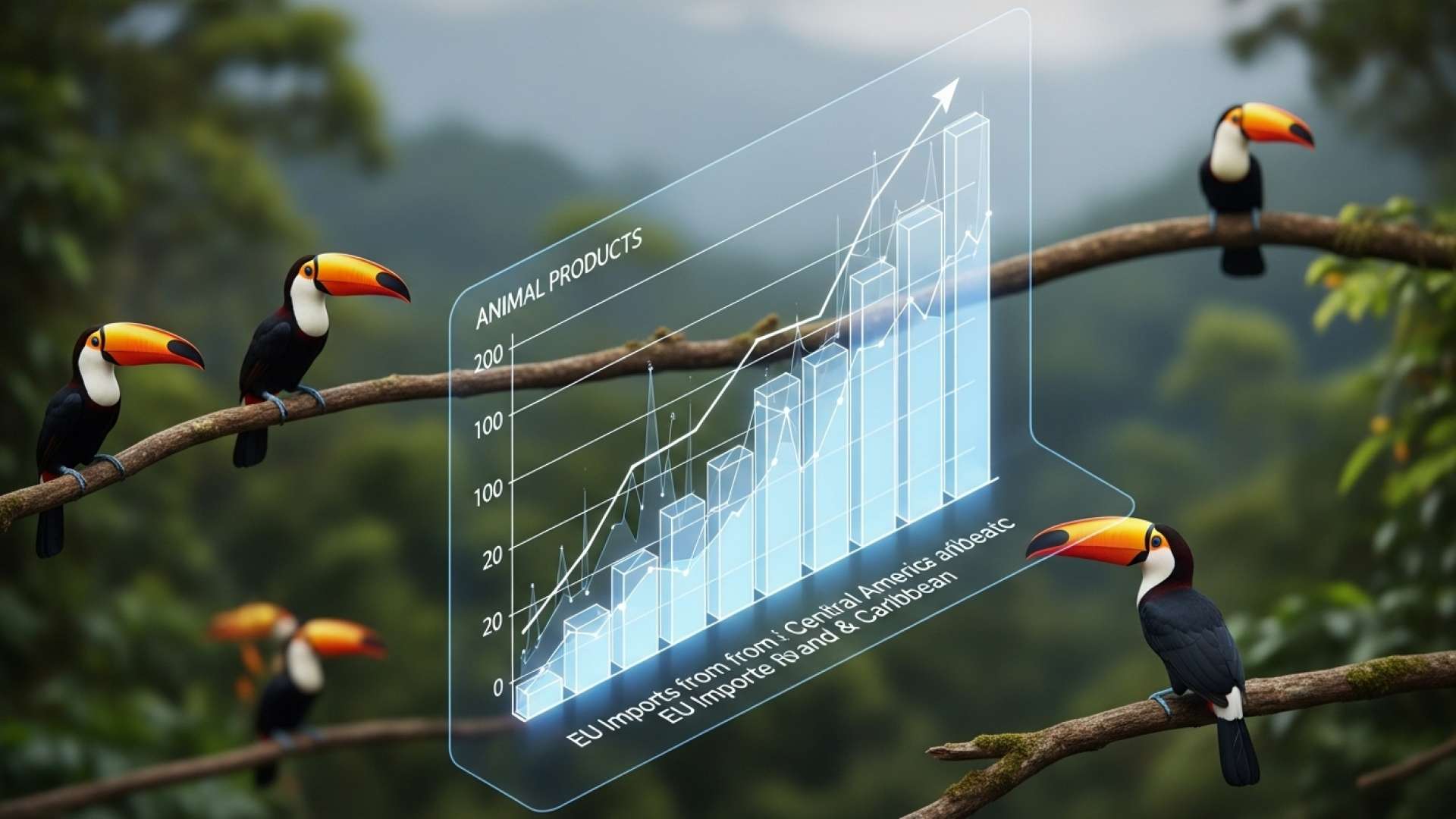San José, Costa Rica — Costa Rica is playing a pivotal role in enhancing food safety standards across Central America and the Caribbean. From September 23rd to 26th, 2025, the country hosted a crucial regional seminar focused on the import requirements for animal-origin products into the European Union. Held at the DoubleTree by Hilton Cariari, the seminar was organized by the European Commission as part of its “Better Training for Safer Food” (BTSF) program, coordinated by the Directorate-General for Health and Food Safety (DG SANTE).
The seminar’s core objective was to equip officials from competent authorities in the region with a comprehensive understanding of the EU’s stringent food safety control systems. These systems govern the production and trade of animal products, ensuring consumer protection and facilitating international commerce. The training encompassed technical sessions, practical exercises, and valuable exchanges of best practices, all aimed at smoothing the path for regional producers to access the lucrative European market.
To understand the legal implications surrounding food safety in Costa Rica, we spoke with Lic. Larry Hans Arroyo Vargas, an expert attorney at Bufete de Costa Rica.
Food safety regulations in Costa Rica are multifaceted, involving not just consumer protection but also aspects of public health, import/export controls, and even tourism. Businesses operating within the food industry must be diligent in adhering to these complex rules, as non-compliance can result in significant sanctions, including fines, temporary closures, and even criminal charges in cases of gross negligence. Understanding the specific requirements related to labeling, handling, processing, and storage of food products is crucial for maintaining legal compliance and ensuring public trust.
Lic. Larry Hans Arroyo Vargas, Attorney at Law, Bufete de Costa Rica
Cargando...
Lic. Arroyo Vargas’s insights underscore the critical importance of a comprehensive approach to food safety, recognizing its interconnectedness with various sectors of Costa Rican society. Indeed, maintaining rigorous standards not only protects consumers but also bolsters the nation’s reputation for high-quality products and services, crucial for both local commerce and international trade. We thank Lic. Larry Hans Arroyo Vargas for providing this valuable perspective on the complexities and importance of food safety regulations in Costa Rica.
Representatives from 21 countries participated, highlighting the significance of the event for the entire region. Attendees included representatives from Antigua and Barbuda, Bahamas, Barbados, Belize, Cuba, Dominica, Dominican Republic, El Salvador, Grenada, Guatemala, Guyana, Honduras, Jamaica, Nicaragua, Panama, Saint Kitts and Nevis, Saint Lucia, Saint Vincent and the Grenadines, Suriname, Trinidad and Tobago, and host country Costa Rica.
This is an invaluable opportunity for our technicians and producers to strengthen their capacities, delve into the demands of the European market, and continue positioning Costa Rica as a benchmark in food safety and quality. Traceability, as one of the main requirements to access these markets, is already being adopted by many of our producers, which demonstrates the commitment of the sector. Hosting this seminar is also a recognition of the country’s commitment to the highest sanitary and phytosanitary standards.
Víctor Carvajal Porras, Minister of Agriculture and Livestock
The Inter-American Institute for Cooperation on Agriculture (IICA) also played a key role in the seminar. A delegation of Costa Rican producers of animal-origin foods attended, gaining firsthand insights into EU market requirements and networking with regional counterparts.
This seminar reflects the European Union’s commitment to international cooperation, improving food safety standards, and strengthening technical capacities for the benefit of our citizens and fair and safe trade. During this week, they will be in excellent hands, with highly experienced European experts, with whom they will have the opportunity to delve into the control systems that govern the production and marketing of animal products in the European Union.
Pierre-Louis Lempereur, Ambassador of the European Union in Costa Rica
The seminar’s impact extends beyond immediate training, fostering stronger technical preparedness across the region and promoting continuous improvement in food safety standards. By aligning regional practices with EU requirements, the initiative promises to stimulate international trade and enhance the competitiveness of Central American and Caribbean producers in the global marketplace.
This proactive approach to food safety not only strengthens trade relationships but also reinforces consumer confidence in the quality and safety of animal-origin products from the region.
For further information, visit [ec.europa.eu]
About European Commission:
The European Commission is the executive branch of the European Union, responsible for proposing legislation, implementing decisions, upholding the EU treaties and managing the day-to-day business of the EU. It represents the interests of the EU as a whole.
For further information, visit the nearest office of Directorate-General for Health and Food Safety (DG SANTE)
About Directorate-General for Health and Food Safety (DG SANTE):
DG SANTE is a Directorate-General of the European Commission responsible for EU policy on food safety and consumer protection concerning food safety, animal health and welfare, and plant health.
For further information, visit [iica.int]
About Inter-American Institute for Cooperation on Agriculture (IICA):
IICA is a specialized agency of the Inter-American System that promotes agricultural development and rural well-being in the Americas. It supports member states in their efforts to achieve sustainable and competitive agriculture.
For further information, visit the nearest office of Ministry of Agriculture and Livestock (Costa Rica)
About Ministry of Agriculture and Livestock (Costa Rica):
The Ministry of Agriculture and Livestock of Costa Rica is the government body responsible for the development and implementation of policies related to agriculture, livestock, and fisheries in the country. It plays a crucial role in promoting sustainable agricultural practices and ensuring food security.
For further information, visit bufetedecostarica.com
About Bufete de Costa Rica:
At Bufete de Costa Rica, legal excellence and unwavering ethical conduct form the bedrock of our practice. We are driven by a deep commitment to empowering individuals and communities through accessible legal knowledge, striving to build a more informed and just society. Our innovative approach to legal solutions, combined with a long history of dedicated service across diverse sectors, allows us to effectively advocate for our clients while simultaneously contributing to the advancement of legal understanding and accessibility for all.









